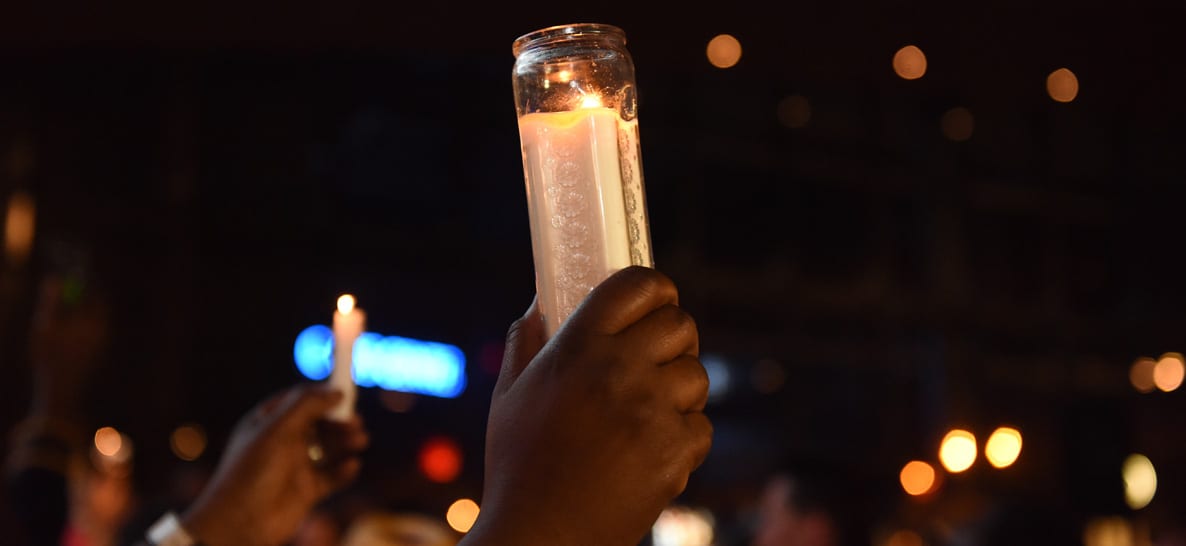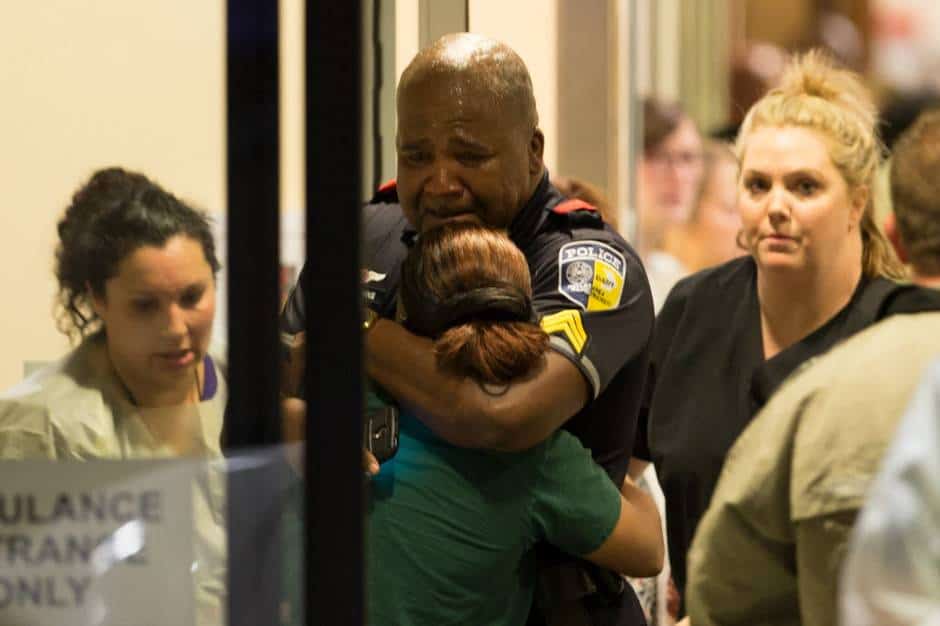
After the horrific shooting in Orlando, Florida, I intended to write a reflection on mourning and the role of the Gospel amid tragedy. But before I could even process enough to write anything, the attention of the world was arrested by another massive terrorist attack, this time in Istanbul, Turkey.
Just in the past three days, in Baton Rouge, Louisiana and St. Paul, Minnesota we’ve watched all-too familiar pictures of orphaned children and newly made widows crying in desperation because men were denied justice and life at the hands of the very people who are sworn to ensure both. We’ve seen law enforcement officers in Dallas, Texas shot and killed while patrolling what was supposed to be a peaceful protest.
Scarcely a day passes when we’re not confronted with unspeakable tragedy accompanied by unrelenting grief. We never have the chance to mourn fully, to recover our emotional health before we are plunged again into the mourning cycle.
We face challenges to our safety and security from two fronts; we are threatened by foreign terror and domestic injustice. While our leaders are sworn to provide protection from all enemies, both foreign and domestic, their failure on both fronts has never been more pronounced.
Christians occupy a special place in this conversation. We are called to mourn over the presence of sin in our lives—and in the world around us. We have a category for the brokenness on display and a perspective on the problems we face that is entirely unique in our culture.
Our challenge is not only to mourn with those who mourn, but to mourn well.
Mourning is more than a meme you share on Facebook or some hashtag on Twitter. True, deep mourning is a call to action, a display of love. Jesus displays both in His teaching and His life. He displayed a type of mourning that simultaneously mourns in the present and finds comfort in the future.
Jesus is our guide.
Mourning for others.
This type of mourning is sympathy. We abhor what is evil. We abhor when evil is done to others.
We should see the suffering of others affected by sin and mourning for the loss of what might have been. Jesus climbed the hill and beheld Jerusalem, the city of God’s chosen, and cried, “O Jerusalem, Jerusalem, the city that kills the prophets and stones those sent to her! How often I wanted to gather your children together … but you would not have it.”
Here Jesus sees the sin of others and mourns their rebellion, wishing for renewal and that it had been another way. This is sympathy, grieving for others and having a broken heart for others.
Mourning with others.
This type of mourning is empathy. When others are hurting, sin has taken its toll and you not only recognize it but you feel the emotions alongside others. When Jesus is informed of the death of His friend Lazarus; he arrives at the tomb, confident of the Lazarus’s impending resurrection, but broken from the sorrow experienced through the pain of loss. John records with passionate simplicity that, “Jesus wept.”
This is empathy, amidst the confidence of God’s sovereignty, and the promise of resurrection we still feel the pain of others and are broken over the loss inflicted by sin.
Mourning sin in ourselves.
This mourning is necessary brokenness over our own sin. It is personal and comes about only when the light of the cross permeates the darkness of our sin-filled souls. We need a poor spirit, devoid of pride recognizing our true state before God. We are in need of redemption. Paul writes in Romans that the key to living in harmony with one another and being able to weep when others weep is that we are “not to be haughty… nor be wise in your own sight.”
We are not called to judge the motives of those who mourn, nor are we empowered to defend ourselves when we are to blame for their pain.
A Christian mourner looks upon the murder of Alton Sterling, Eric Garner, Trayvon Martin or Philando Castile and sees that the seed of hatred that cut them down is planted in each of us.
Yes, there may be systemic racism in our law enforcement, but it doesn’t begin there: It begins in our homes, in the jokes we tell, the humor we allow, the sins we wink at and ignore. Those winks are weapons in the hands of sin, and they are deadly. The hate we harbor in our hearts gives birth to sin, and when it is fully grown—as we’ve seen this week—sin produces death.
Mourning and hope.
Christ is not only our model for how to mourn, but He is our means to overcome the sin over which we mourn. He can change leopards’ spots and melt the heart of stone. He has begun a new work in us and in our world, ushered in a new Kingdom that will come; and a will that shall be done. And at the very gates of hell, hatred, racism, profiling, injustice, murder and bigotry shall not prevail against it.
There will dawn a day when our mourning will be interrupted not by tragedy but by a trumpet, and the cycle of sin will be broken as the clouds part to reveal our Savior.
But until that day, mourn with those who mourn, and weep with those who weep and in so doing you will not be overcome with evil, but will overcome evil with good.






















